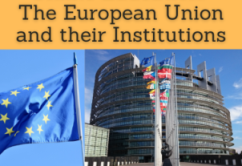Business in Cyprus, Nicosia, merchant marine

Cypriot Economy and Foreign Trade. Business in Nicosia (Cyprus)
- Introduction to the Republic of Cyprus (EU)
- Economy of Cyprus: The world's fourth largest ocean fleet
- Business in Nicosia
- Cypriot International Trade
- Investment in Cyprus
- Access to the Cypriot Market
- Business Plan for Cyprus
The objectives of the subject “International Trade and Business in Cyprus” are the following:
- To analyze the Cypriot Economy and Foreign Trade
- To identify business opportunities in the Cypriot Market
- To analyze the trade relations of Cyprus with the student's country
- To know the Trade Agreements of Cyprus as a member of the EU
- To develop a business plan for the Cypriot Market

The Subject “Foreign Trade and Business in Cyprus” belongs to the following Online Programs taught by EENI Global Business School:
Masters: International Business, Foreign Trade.
 Masters adapted to Cypriot Students.
Masters adapted to Cypriot Students.
Languages:  +
+  Chipre
Chipre  Chypre
Chypre  Chipre.
Chipre.
- Credits of the Subject “Doing Business in Cyprus”: 1

- Duration: one week

International Trade and Business in Cyprus


Preferential Access and Trade Agreements of Cyprus:
- Cyprus and the Orthodox Economic Area / European Economic Area
- The EU
- As a member of the EU, Cyprus is a beneficiary of the EU Trade Agreements
- European Single Market
- The EU Services Directive
- European Digital Single Market
- European Customs Union


- WTO
- GATS
- Agreement on the Application of Sanitary Measures
- Agreement on Technical Barriers to Trade
- Agreement on Preshipment Inspection
- Agreement on Safeguards
- Trade Facilitation Agreement
- WCO
- Kyoto Convention
- Convention Harmonization of Frontier Controls of Goods
- BIC
- Chicago Convention (ICAO)
- IMO
- Convention for Safe Containers
- Istanbul Convention
- IRU
- TIR Convention
- Guidelines on Safe Load Securing for Road Transport
- International Chamber of Shipping
- Customs Convention on Containers - not a member
- ICC

- The EU
- EBRD
- ECB
- EIB
- EU-CELAC Summit
- UNECE
- OSCE
- Group of States of the European Council Convention against Corruption

- UN
- WTO
- WB
- IMF
- Asia-Europe Meeting
- Capital of Cyprus: Nicosia
- Cypriot Official Languages: Turkish and Greek
- Area of Cyprus: 9,251 km²
- Cypriot Population: 1.14 million people
- Type of Government: Presidential Republic
- Nearest countries (by sea): Turkey, Syria and Greece
- Independence of Cyprus: 1960 (UK)
- Northern Cyprus was occupied by Turkey (1974) creating the Turkish Republic of Northern Cyprus (only recognized by Turkey)
Religion in Cyprus: Orthodoxy (Christianity)
- Cyprus belongs to the Orthodox Economic Area (European Economic Area)


Economy of Cyprus.
- Cypriot services sector is one of the pillars of the economy of the Republic of Cyprus
- Cypriot Industrial sector employs 25% of the population
- GDP (nominal): 22,446 million dollars
- Agriculture: 2%
- Industry: 19%
- Services 79%
- GDP per capita: 29,830 dollars
- Cypriot Currency: Euro (2008)
- Cyprus joined the EU in 2004
- 2012: rescue by the EU (17,500 million Euros)
- In 2013 a “corralito” was imposed in Cyprus
- The fleet of vessels registered in Cyprus represents the fourth largest in the world
Cypriot Foreign Trade.
- Main Cypriot Exports: citrus, cement, potatoes, medicines, dresses
- Top trading partners of Cyprus are Greece, Germany, the UK, Italy
(c) EENI Global Business School (1995-2024)
We do not use cookies
Top of this page



